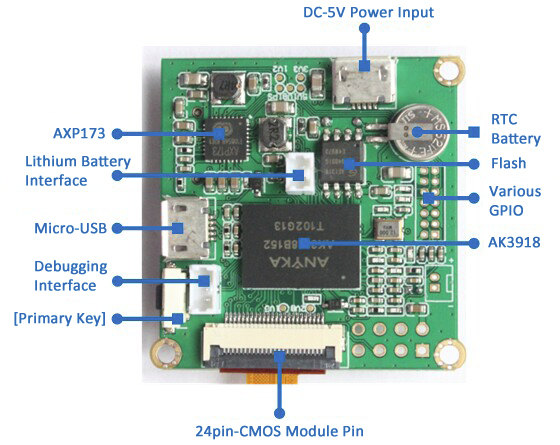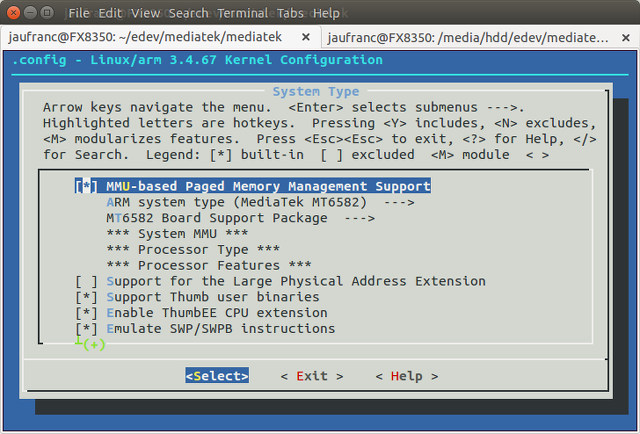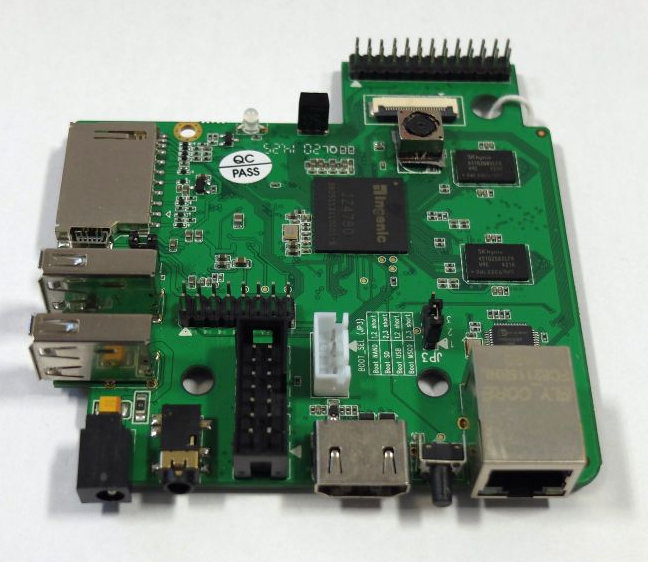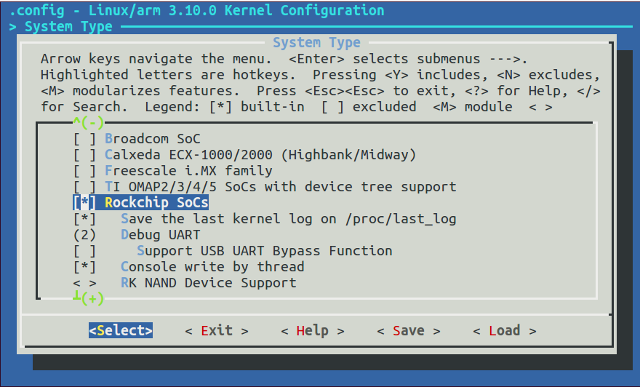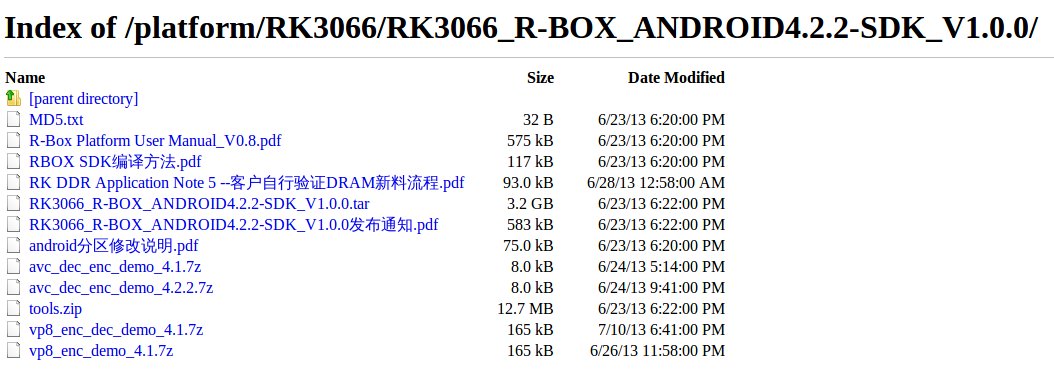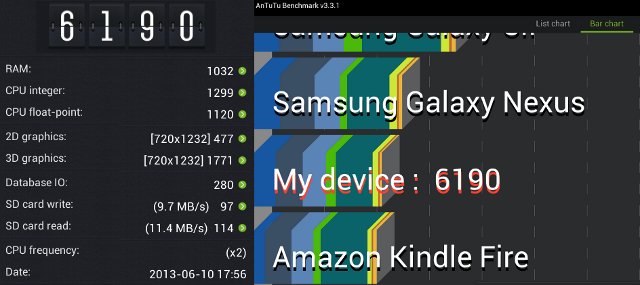SinoVoIP BPI-D1 is a tiny 720p30 camera module running Linux, and powered by Anyka AK3918 ARM9 processor. It’s a standalone module that can be powered by micro USB (5V), or an external Lithium battery, and it also includes various GPIOs, a micro USB interface, a micro SD slot to boot Linux, optional Wi-Fi connectivity, and more.. BPI D1 specifications: Processor – Anyka AK3918 ARM926EJ processor @ 400 MHz System Memory – 64MB DDR2 Storage – 16 MB SPI Flash + micro SD flash up to 32GB. Camera: CMOS Image Sensor 720p @ 30fps, visible light with 940 nm two-way infrared lens filter, with infrared night vision function Lens – M7*P0.35 EFL=3.0mm/F.NO=2.8/View Angle=60° Video Recording – H.264 / AVI hardware encoding at 720p 30fps for up to 120 hours of video data on a 32GB micro SD card Audio Formats – MP3/WMA/AAC Audio Input – Microphone Connectivity – 802.11 b/g/n (AP […]
Android 5.0 Lollipop Source Code Pushed to AOSP
As Nexus 6 smartphone, Nexus 6 tablet, and Nexus Player have now started to ship, Google has pushed Android Lollipop to AOSP (Android Open Source Project), as well as images for Nexus 4, Nexus 5, Nexus 7 (2012 and 2013), and Nexus 10. You’ll soon be able to retrieve the source code with the following command lines [Update: I still can’t use the lollipop-release branch to retrieve the code, so instead you can use android-5.0.0_r1 tag for Nexus 9, or android-5.0.0_r2 tag for Nexus Player / Android TV]: repo init -u https://android.googlesource.com/platform/manifest -b android-5.0.0_r1 repo sync Currently repo init fails with: error: in init -u https://android.googlesource.com/platform/manifest -b lollipop-release –repo-url=https://gerrit.googlesource.com/git-repo –repo-branch=stable: revision lollipop-release in manifests not found But everything should come online soon. In the meantime, you could still browse the code. Anyway that means Android 5.0 images for mini PCs, TV boxes and other devices will hopefully be available in […]
Mediatek Releases Linux Source Code for Android One Smartphones
Android One is a program by Google aiming at bringing low cost smartphones to the emerging markets with firmware updates to the latest Android version guaranteed for two years. Three phones part of Android One program have recently been announced for the Indian market: Micromax Canvas A1, Karbonn Sparkle V, and Spice Dream Uno, and Android One phones will be available in Indonesia, the Philippines and South Asia (Bangladesh, Nepal, Pakistan, and Sri Lanka) by the year of the year. The three phones currently available sell for $100, which based on the specs (quad core processor, 1GB RAM, 4GB flash, 4.5″ display) is not exactly an aggressive pricing compared to what is already available from Aliexpress, but the main advantage here is clearly Google support with promised firmware updates, and currently Android 4.4.4. All these phones appear to be powered by Mediatek MT6582, and company decided to release the Linux […]
MIPS Creator CI20 Development Board Powered by Ingenic JZ4780 SoC
There are plenty of ARM based development boards running Linux and Android, but with MIPS it’s a different story. Microchip does have some affordable development board powered by their MIPS MCUs, but these don’t have the hardware specs to run Linux based operating systems, and Ingenic Newton Platform for wearables can run Android and Linux, but it appears to be reversed to companies with virtual no documentation. There are some MIPS platform running OpenWRT on hardware such as routers or Wi-Fi boards, but these can’t be considered fully supported development boards. But Imagination Technologies is trying to make MIPS more relevant, first by launching Prpl developers’ community, and MIPS Creator CI20 development board powered by Ingenic JZ4780 dual core MIPS32 (Xburst) core processor with PowerVR SGX540 GPU should soon be available with complete documentation and source code. Let’s go through the hardware specifications first: SoC – Ingenic JZ4780 dual core […]
Linux Kernel Source Code and Chromium OS Overlay for Rockchip RK3288
A few days ago, we’ve seen Chromium OS running on Rockchip RK3288 development platform. I’ve been informed the source code could have already been released via the newly registered rkchrome github account with Linux kernel 3.10.30 and the overlay files to build Chromium OS for RK3288. There’s also a u-boot repository but it is currently empty. This Linux kernel can also boot Rockchip RK3188 based Radxa Rock development board, but more tests are needed to see if it’s really usable. I’ll have a look at the Linux kernel, and try to build it, and leave the Chromium OS part for later or other people. Let’s retrieve the source code:
|
1 2 |
git clone https://github.com/rkchrome/kernel.git cd kernel |
We’ve got two kernel config files related to Rockchip in arch/arm/config:
|
1 2 3 |
ls arch/arm/configs/ | grep rock rockchip_chromium_defconfig rockchip_defconfig |
But since this is a recent 3.10 kernel with support for Flattened Device Tree support, and multi-platform support, there’s not much to be seen in these files, and […]
Rockchip RK3066 Android 4.2.2 HDMI TV Stick SDK Leaked
About 10 days ago, Android 4.2.2 SDK for MK908 (RK3188) HDMI TV Stick was leaked, and now, I’m reporting another leak, this time for the Android 4.2.2 SDK for the Android TV Boxes based on the older Rockchip RK3066 dual core processor. The files were first found on an FTP server, but one of Freaktab members uploaded a compressed image of all files, RK3066_R-BOX.7z (3.2GB) to MEGA.co.nz. The content of the SDK directory comes with a bit of documentation, AVC and VP8 encoding and decoding demos, and the SDK itself as a 3.2GB tar. I’ve haven’t download the file yet. If you switch to the parent directory, you’ll find more documentation such as several datasheets and RK3066 technical reference manual, hardware files (Schematics, PCB layout, BoM), and some manufacturing files. If you go up to the parent directory, you’ll also find an A20 directory with AllWinner A20 Android SDK (homlet […]
CheapCast ChromeCast Emulator For Android Source Code Released
CheapCast is an Android app that lets you emulate ChromeCast hardware on any Android 4.x devices such as smartphone, tablet, and mini PCs. I’ve tried CheapCast last week unsuccessfully on several hardware, but a recent update fixed that and I could use Tronsmart T428 to stream videos from YouTube with the Cast button just like you would do with a real ChromeCast. There’s more work to be done however, and the only application that currently work are YouTube and Google Music, which is nice, but more work is needed to bring CheapCast functionalities closer to what’s possible with ChromeCast. That’s why Sebastian Mauer, CheapCast developer, has decided to release the source code under Apache License Version 2.0. You can get the source code from Cheapcast repo on github:
|
1 |
git clone https://github.com/mauimauer/cheapcast.git |
Finally import it into Android Studio or Eclipse, and start hacking and contribute back to the project. Jean-Luc Aufranc (CNXSoft)Jean-Luc started […]
Wandboard Dual Benchmarks, Serial Console Fun, and Distributions List
Since last time I tried Android and Ubuntu on the Wandboard, a few things happened. I’m not talking about Wandboard Quad announcement, but instead I received a Class 10 SD card, which makes the system so much responsive, and a RS232 to USB adapter so that I can access the serial console. So today, I’ll publish some benchmark results on Wandboard Dual since none appear to be available, and play a little with the serial console. A few things also happened on the operating systems side with more distributions now available for the board. Prerequisites I ran benchmark in Android, so I installed the latest Android 4.1.2 image (11th of April 2012) to my new SD card (ADATA 16 GB Class 10), and contrary to my poor experience on a 4GB Class 4 micro SD, everything was very fluid. I’ve also installed Google Play in order to install the applications. […]


